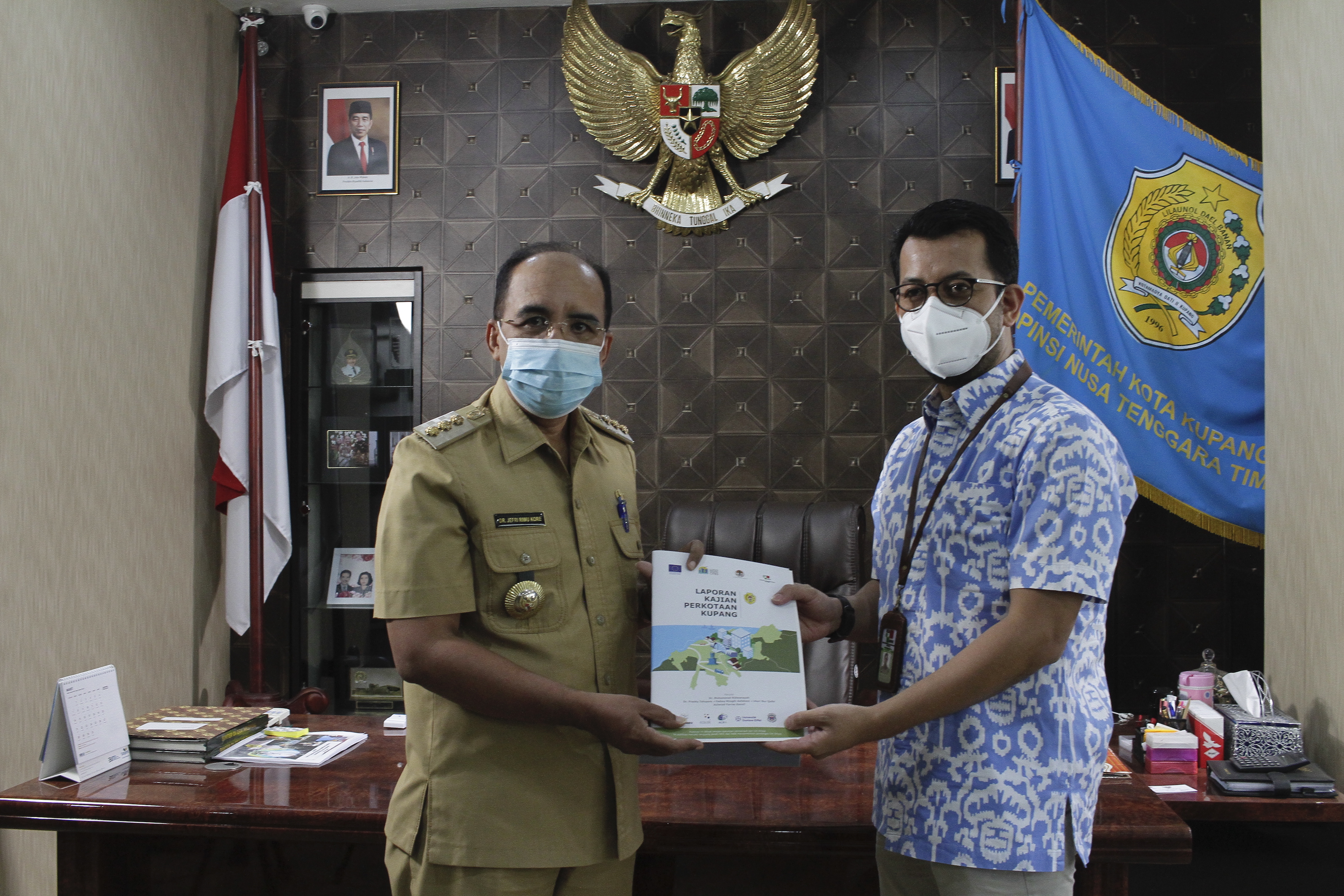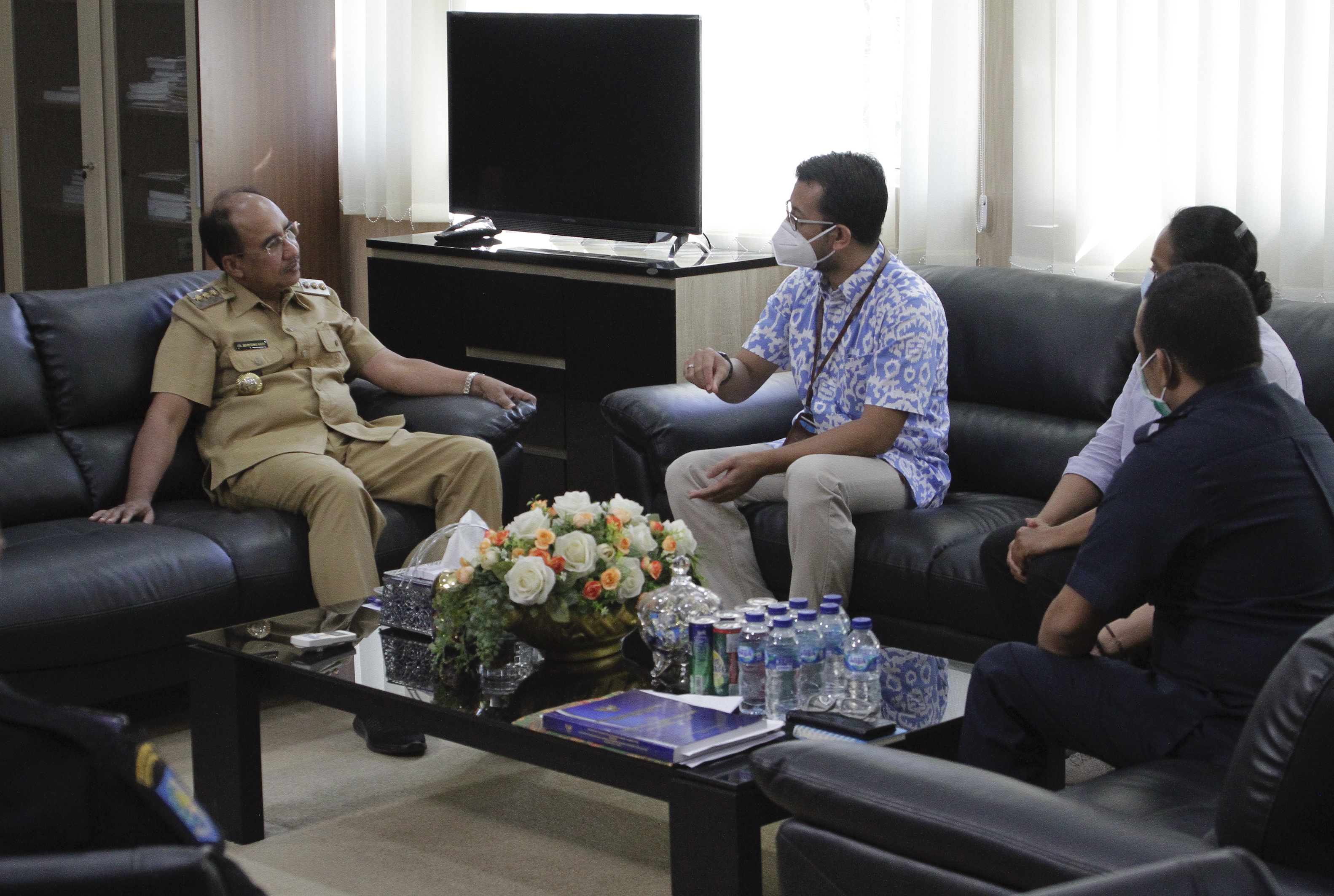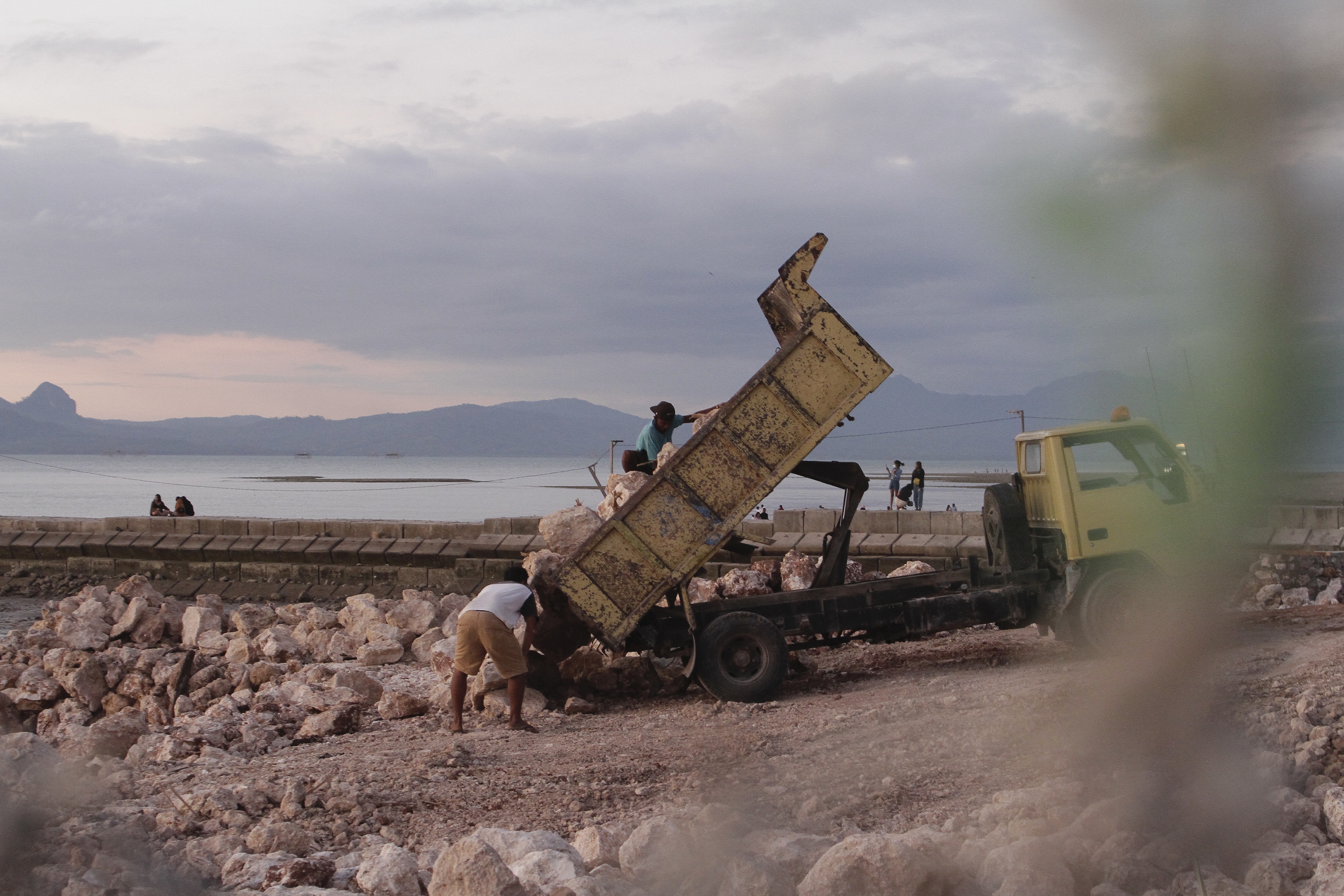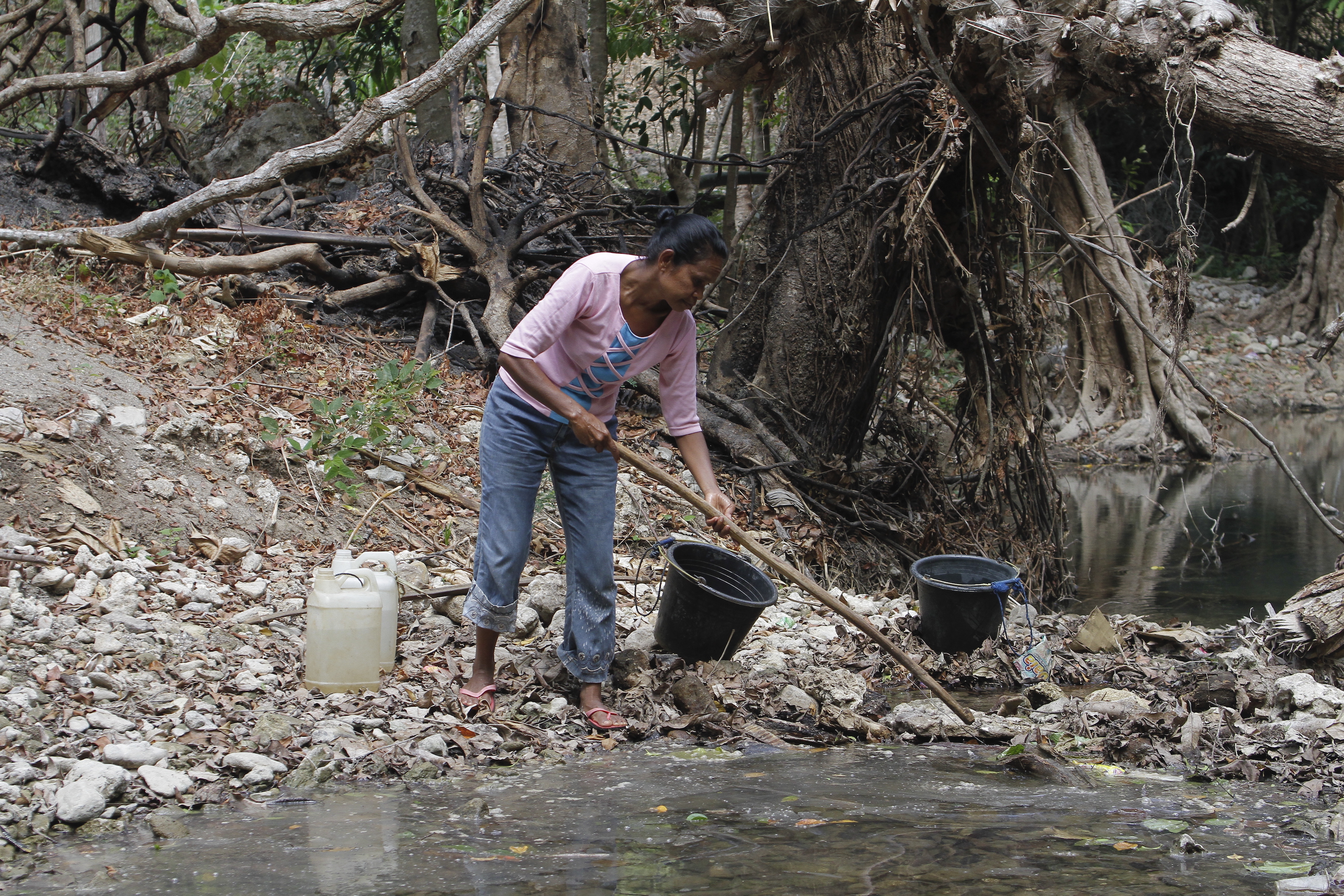In the Kupang City of Indonesia, the impacts of climate change are likely to exacerbate water access and availability problems. The local government with Climate Resilient and Inclusive Cities are teaming up to solve this long-standing problem.
"We need a breakthrough and innovative solution to tackle water scarcity in Kupang. There are already short-term and long-term initiatives in place to improve water access, but we need more hands to help us, which CRIC can do," said the Mayor of Kupang, Dr. Jefirstson Riwu Kore at his office in Kupang on Tuesday (8/6).

Mayor of Kupang Dr. Jefirstson Riwu Kore received Urban Analysis Report from CRIC Project Coordinator Putra Dwitama on June 8, 2021.

Mayor of Kupang Dr. Jefirstson Riwu Kore and the Head of Bappeda Jeffry Pelt had an audience meeting with CRIC's Putra Dwitama & Fransiska Sugi on June 8, 2021.
The water problem
The territorial split in 1996 formed the City of Kupang and the Regency of Kupang. Despite their administrative boundary, both have characteristic dry land and low rainfall with four months of the wet season and eight months of the dry season. People in Kupang rely on groundwater and surface water to get their water supplies. All surface water sources in Kupang come from the upstream areas in the Regency of Kupang.
The residents get their water from a state-owned water utility company/PDAM, individually owned drilling wells, privately run tanker trucks, and water depots. PDAM, as the state-owned operator, provides water with the piped system to only 24% of the city's 470,000 population.
The Head of Kupang Planning Agency Jeffry Pelt said that the destruction of water catchment areas in the southern part of the city will result in water insecurity in long term. "Water catchment areas turned to human settlements due to the city's growing population. Climate change will pose more risks with erratic rainfall and shrink water supplies," he said.
River, one of the drinking water sources for locals

The soil in Kupang is dominated by limestone
Building climate resilience
Kupang is one of the ten pilot cities committed to tackling climate change through local climate actions. The visit from CRIC to Kupang from 7 to 11 June 2021 concludes that the city needs to anticipate the impacts of climate change on water sources. During this visit, CRIC had an audience meeting with the Mayor of Kupang and discussed the water issue with the CRIC Working Group.
In the CRIC Working Group meeting, CRIC Project Coordinator Putra Dwitama emphasized the need "to address water scarcity problem through the lens of climate change." He also said that CRIC would assist the city through capacity-building activities, technical assistance, and alternative financing during project intervention.
CRIC will deliver climate change mitigation and adaptation training to develop Climate Action Plan (CAP) from July 2021 to February 2022 to ten pilot cities. The training seeks to improve local governments' capacity to develop local climate actions in line with the national government's climate change commitment. The training will eventually help the city improve its resilience to climate hazards while ensuring an equitable distribution of social, environmental, and economic benefits from the implementation of Climate Action Plans. CRIC, through ECOLISE, will also develop a water management tool to improve water governance in Kupang.
Learn more about Kupang: Urban Analysis Report


